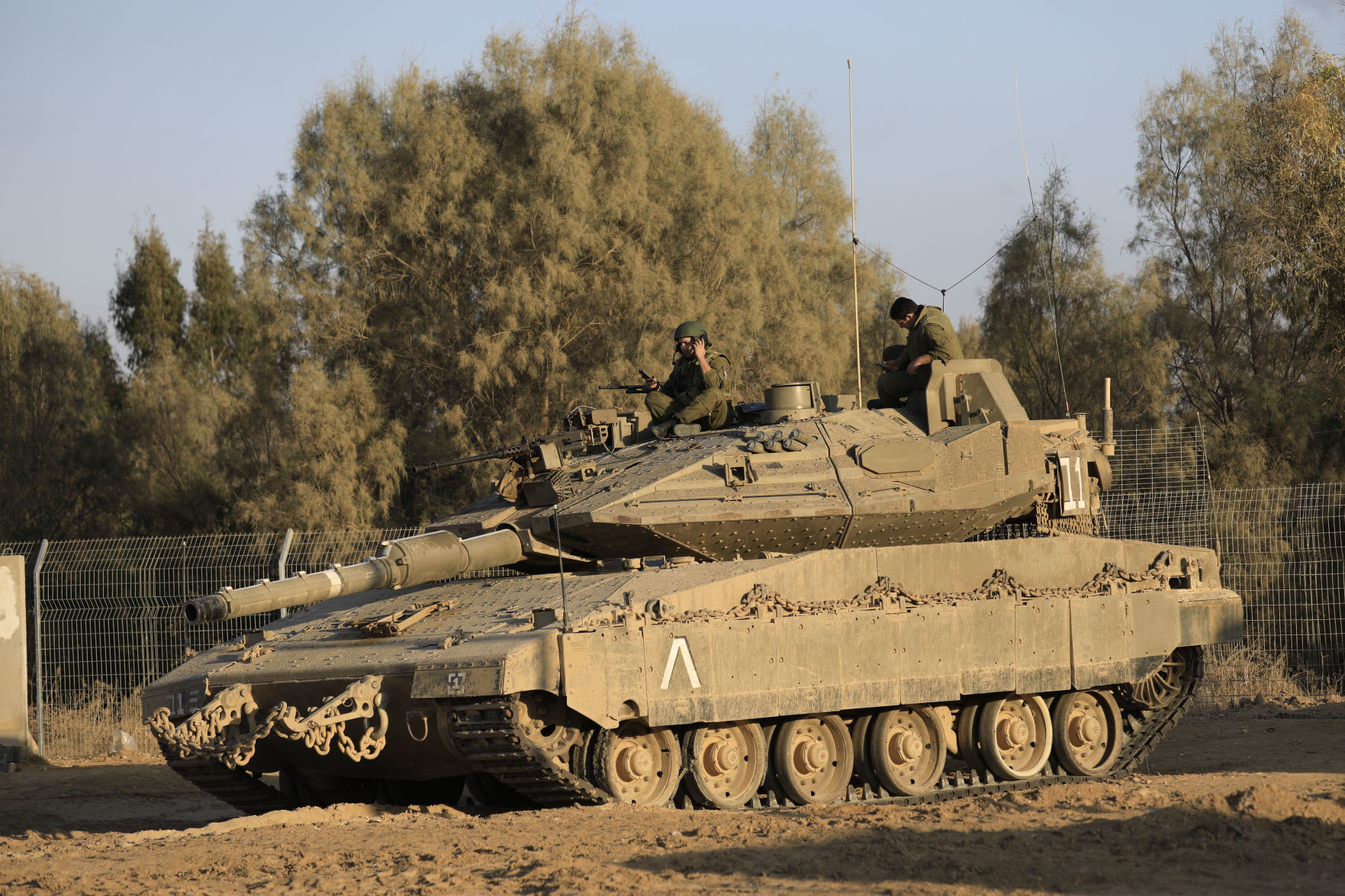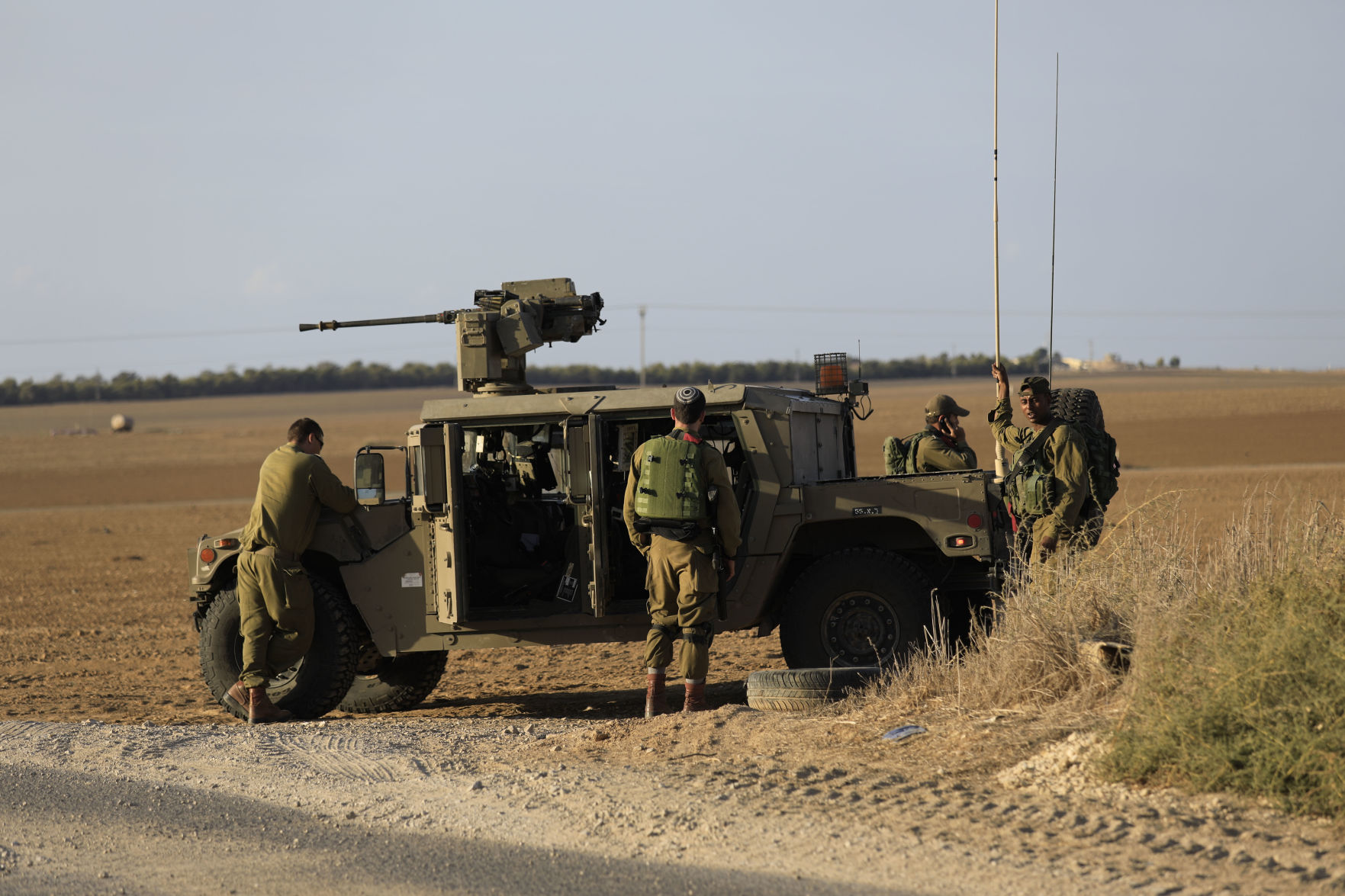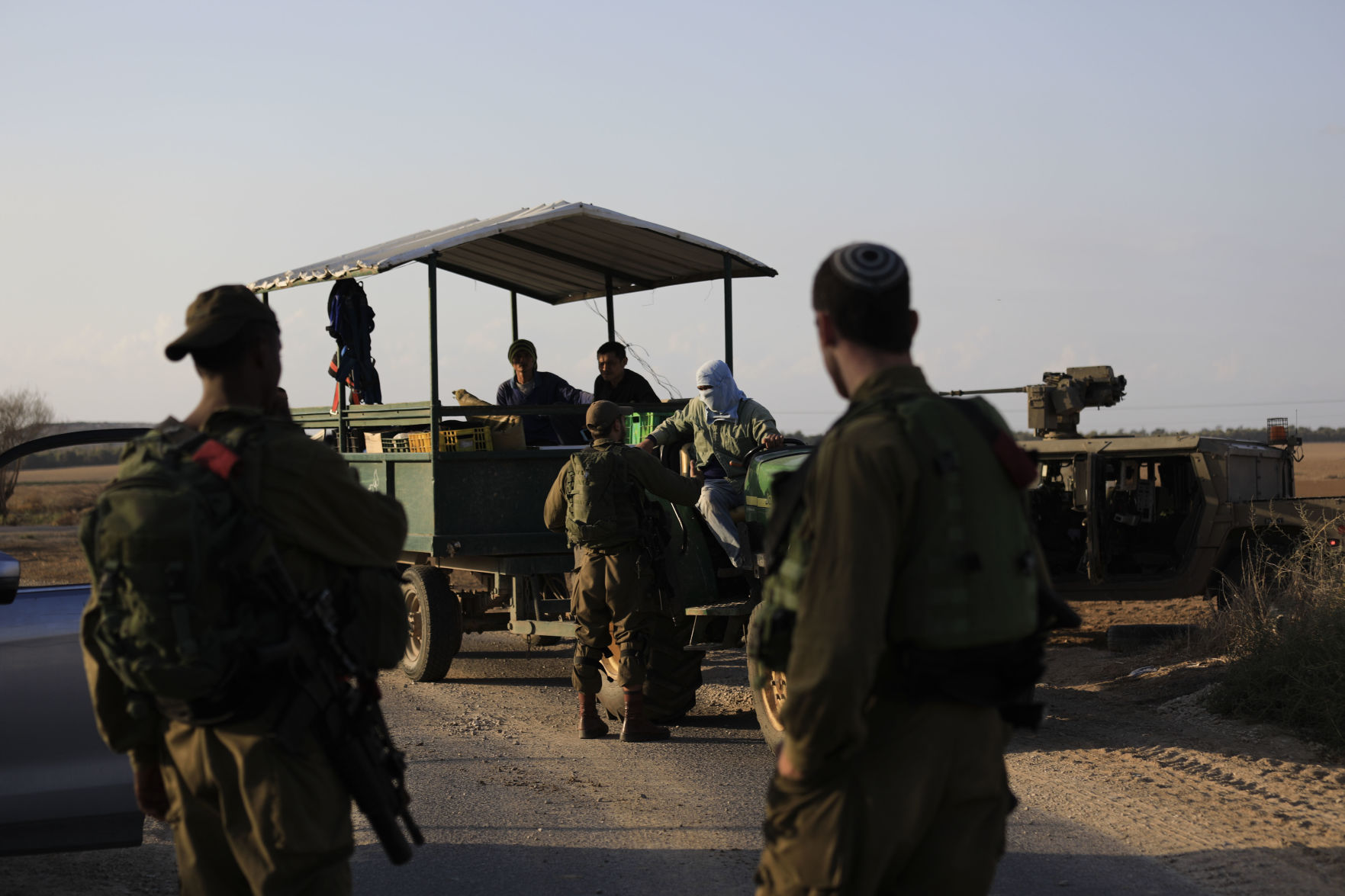JERUSALEM (AP) — The Israeli military said it discovered and detonated a militant tunnel on Monday that was dug from Gaza into Israel, in a rare flare-up along the tense border that has remained largely quiet since a 2014 war
JERUSALEM (AP) — The Israeli military said it discovered and detonated a militant tunnel on Monday that was dug from Gaza into Israel, in a rare flare-up along the tense border that has remained largely quiet since a 2014 war with Gaza’s Hamas rulers.
Military spokesman Lt. Col. Jonathan Conricus said thanks to groundbreaking technology this “active tunnel,” which was still being dug, was discovered and forces blew it up inside Israeli territory. He said military intelligence had been tracking it for some time.
He called it a “grave and unacceptable violation of Israeli sovereignty” and that Israel holds Hamas responsible for the breach of its territory. Conricus said the assumption is there are more tunnels boring into Israel aimed at attacking its soldiers and citizens.
Ashraf al-Kidra, a Gaza Health Ministry spokesman, said seven people were killed. At least nine wounded were evacuated from the tunnel area to hospital. Witnesses at the hospital identified five of the casualties as members of the Iranian-backed militant group Islamic Jihad. Hamas said one of its members died when he entered the tunnel to evacuate wounded militants.
Hamas had no comment on the Israeli strike but Islamic Jihad militants prevented journalists from filming at the scene, suggesting the tunnel belonged to them.
“Those who try to harm us, we harm them,” said Israeli Prime Minister Benjamin Netanyahu. “Today we detected a tunnel and destroyed it and we will continue to do so.”
During the 2014 war, Hamas militants on several occasions made their way into Israel through a tunnel network that caught Israel off guard. Although they did not manage to reach civilian areas, the infiltrations terrified the local population. Israel destroyed 32 tunnels during that conflict, and since then has made neutralizing the tunnel threat a top priority.
Military spokesman Ronen Manelis said it was a defensive operation in Israeli territory aimed at putting the tunnel out of order. He said most of the fatalities were from smoke and the operation was not intended to kill any of the militants who died in Gaza.
Israel has long claimed Hamas has been investing in new tunnels since the last war to attack Israel rather than helping its own people recover.
The military’s discovery followed word from the United Nation’s refugee agency that it had found what appeared to be a tunnel burrowed beneath one of the schools it operates in the Gaza Strip. Christopher Gunness, a spokesman for the United Nations Relief and Works Agency, said in a statement that the organization “robustly intervened with relevant parties to protest the violation.”
Israel’s military body responsible for governing Palestinian affairs noted UNRWA’s condemnation, adding that “Hamas is lying not only to the world but to the people of Gaza.”
President Donald Trump’s special Mideast envoy Jason Greenblatt took to Twitter to rail against Hamas, which the United States like most of the West considers a terrorist organization.
“Hamas uses the world’s generosity to shield terror. Palestinians in Gaza deserve so much better,” Greenblatt wrote.
Greenblatt also said that, in contrast, a rare meeting between top Israeli and Palestinian leaders in the West Bank yielded “meaningful steps” that strengthened economic ties between the two sides.
Israeli Finance Minister Moshe Kahlon met Sunday in Ramallah with Palestinian Prime Minister Rami Hamdallah to discuss potential financial projects, in a meeting that was also attended by top Israeli and Palestinian security officials. The meeting came just days after Israel approved construction of almost 200 new Jewish homes in an east Jerusalem neighborhood, part of a major settlement boom.
In a statement, the Palestinians said they protested Israel’s recent settlement expansion.
Greenblatt, however, reported “important progress” was made in the meeting and that there were “meaningful steps forward on key economic issues — revenues, customs, and investment — that help support the search for peace.”
———
Associated Press writer Fares Akram in Gaza City, Gaza Strip, contributed to this report.




